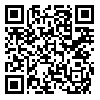Mon, Feb 2, 2026
Volume 34, Issue 1 (1-2024)
JHNM 2024, 34(1): 71-81 |
Back to browse issues page
Download citation:
BibTeX | RIS | EndNote | Medlars | ProCite | Reference Manager | RefWorks
Send citation to:



BibTeX | RIS | EndNote | Medlars | ProCite | Reference Manager | RefWorks
Send citation to:
Ravi R, Ramesh M, Chalasani S H, Mathias J, Kulkarni P. Barriers and Facilitators of Voluntary Medication Errors Reporting According to the Nursing Staff in India. JHNM 2024; 34 (1) :71-81
URL: http://hnmj.gums.ac.ir/article-1-2250-en.html
URL: http://hnmj.gums.ac.ir/article-1-2250-en.html
1- Research Scholar, Department of Pharmacy Practice, JSS College of Pharmacy, JSS Academy of Higher Education & Research, Mysuru, Karnataka, India.
2- Professor, Department of Pharmacy Practice, JSS College of Pharmacy, JSS Academy of Higher Education & Research, Mysuru, Karnataka, India.
3- Assistant Professor, Department of Pharmacy Practice, JSS College of Pharmacy, JSS Academy of Higher Education & Research, Mysuru, Karnataka, India. ,sriharshachalasani@jssuni.edu.in
4- Deputy Chief of Nursing services, JSS Hospital, Mysuru, Karnataka, India.
5- Assistant Professor, Department of Community Medicine, JSS Medical College and Hospital, JSS Academy of Higher Education & Research, Mysuru, Karnataka, India.
2- Professor, Department of Pharmacy Practice, JSS College of Pharmacy, JSS Academy of Higher Education & Research, Mysuru, Karnataka, India.
3- Assistant Professor, Department of Pharmacy Practice, JSS College of Pharmacy, JSS Academy of Higher Education & Research, Mysuru, Karnataka, India. ,
4- Deputy Chief of Nursing services, JSS Hospital, Mysuru, Karnataka, India.
5- Assistant Professor, Department of Community Medicine, JSS Medical College and Hospital, JSS Academy of Higher Education & Research, Mysuru, Karnataka, India.
Abstract: (1372 Views)
Introduction: Medication errors (MEs) are common among nursing staff due to the fear or lack of knowledge and time in reporting MEs.
Objective: This study aims to identify the barriers and facilitators of voluntary ME reporting according to the nursing staff in India.
Materials and Methods: This cross-sectional study was conducted on 398 nurses of a hospital in India, working in three different shifts with various specialties, who were selected by a convenience sampling method. A validated questionnaire was used to collect data which was prepared in Google Forms. The chi-square test was used to determine whether there was any statistical difference among the responses.
Results: Results showed that 87% of nurses were female and 13% were male. The majority were at an age range of 31–40 years (44.9%) and had good knowledge of MEs and the reporting system in the hospital (96.2%). Regarding the barriers, 29.9% (P<0.001) were a beginner in using the reporting system, while 70% had prior experience with the system; 85.4% (P=0.024) reported the lack of a relaxing working environment, 54.7% (P=0.031) reported burnout, 27.6% (P=0.0001) reported personnel problems, 21.6% (P<0.001) reported peer pressure and so on. Receiving support and encouragement from the multi-disciplinary team (91.7%), receiving feedback for the reported MEs that focuses on the system and not on the individuals (90.7%), professional encouragement for the reported MEs (90.4%), and developing a “no-blame” culture (86.9%) were the facilitators of the voluntary ME reporting by the nursing staffs (none of them were statistically significant).
Conclusion: Although it is impractical to eliminate all MEs, the engagement of nursing staff is essential in ME reduction and prevention.
Objective: This study aims to identify the barriers and facilitators of voluntary ME reporting according to the nursing staff in India.
Materials and Methods: This cross-sectional study was conducted on 398 nurses of a hospital in India, working in three different shifts with various specialties, who were selected by a convenience sampling method. A validated questionnaire was used to collect data which was prepared in Google Forms. The chi-square test was used to determine whether there was any statistical difference among the responses.
Results: Results showed that 87% of nurses were female and 13% were male. The majority were at an age range of 31–40 years (44.9%) and had good knowledge of MEs and the reporting system in the hospital (96.2%). Regarding the barriers, 29.9% (P<0.001) were a beginner in using the reporting system, while 70% had prior experience with the system; 85.4% (P=0.024) reported the lack of a relaxing working environment, 54.7% (P=0.031) reported burnout, 27.6% (P=0.0001) reported personnel problems, 21.6% (P<0.001) reported peer pressure and so on. Receiving support and encouragement from the multi-disciplinary team (91.7%), receiving feedback for the reported MEs that focuses on the system and not on the individuals (90.7%), professional encouragement for the reported MEs (90.4%), and developing a “no-blame” culture (86.9%) were the facilitators of the voluntary ME reporting by the nursing staffs (none of them were statistically significant).
Conclusion: Although it is impractical to eliminate all MEs, the engagement of nursing staff is essential in ME reduction and prevention.
Article Type : Research |
Subject:
Special
Received: 2022/12/21 | Accepted: 2023/06/25 | Published: 2024/01/1
Received: 2022/12/21 | Accepted: 2023/06/25 | Published: 2024/01/1
Send email to the article author
| Rights and permissions | |
 | This work is licensed under a Creative Commons Attribution-NonCommercial 4.0 International License. |






